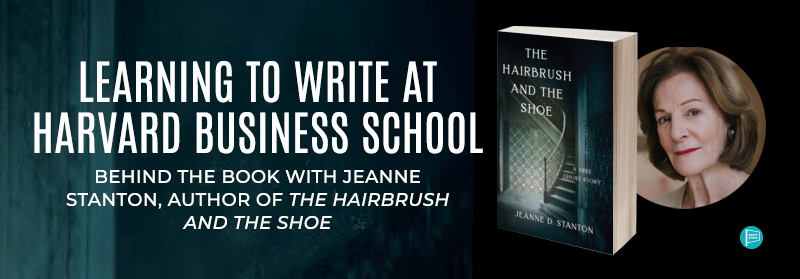
The day after college graduation three friends and I began job-hunting in San Francisco. The head of an employment agency soon set me straight: My English major was useless and I’d best brush up my typing and hope for a clerical job where I could work my way up. Up where? I wondered, as I filed sales reports at a small mutual fund. But as it turned out, that is exactly what I did. I moved to Boston, got a temporary job typing for several graduate students, and, because I could make legible prose out of their convoluted academic jargon, was promoted to editorial assistant, beginning a climb that ended in my writing management cases at Harvard’s Graduate School of Business Administration.
My early English teachers were taskmasters devoted to grammar, punctuation, and sentence structure; college professors taught me to write essays that were models of clarity and logic and to compose stories built on tenets of character development and narrative arc. But it was while working at Harvard that I learned to write in the way I have ever since.
Harvard case studies are written descriptions of management problems: declining sales, high employee turnover, competition, a need to expand. Each case features an ongoing situation in a real company; content is based upon interviews and documents such as financial statements. Written in objective and unadorned prose, cases must be succinct and well-organized, as students typically read and analyze four to five cases daily. Although company names are often disguised, cases must be reviewed and cleared by the host company. Content, therefore, must be accurate and balanced. Direct quotes are carefully edited to avoid damaging or misrepresenting the source.
While this may sound like a how-to for a dry, bloodless read, in truth I found each case to be a slice of real life with mysteries to be plumbed. Competitive pressures might be dire, employees recalcitrant, management stymied.
Writing fiction involves setting a scene and developing characters, showing rather than telling, and using pacing and voice to effect drama. Imagination is essential. “Be a better liar!” my old creative writing notes say. “Know the ending! Every word must lead toward this climax.” Non-fiction, particularly the flashy version introduced by journalist Tom Wolfe, can incorporate many of these same techniques.
Non-fiction, as I practiced it while writing cases, is the antithesis. Imagination plays no part. If you know the ending you are making unwarranted assumptions. The job is to record the specifics of who, what, when, and where. As for the ending, that is the students’ job, as most cases end the same way: “What would you do now?”
I discovered that I was suited for this kind of writing. Much as I might have aspired to be a novelist, I haven’t the ability to dream up compelling characters or plots. What I am good at is observing and recording. I also am acutely curious, eager to know the who, what, when and where. Once I began conducting interviews, I found that subjects would sense my genuine interest and open up, telling me all kinds of things.
The most critical and useful thing I learned was to begin my research with a detailed outline. When I worked for a senior professor in the marketing area we would first sit down and list what students would need to know about a company and its business, whom to interview, what financial and industry data to include. My modus operandi was to cast a very wide net, figuring it would be easier to trim than to add on later.
Several years after I began writing cases I was at a party for graduate students when a young faculty wife, assuming I was a secretary, asked me—in what I perceived as a patronizing manner—“What are you doing with your English major?” I was pleased to be able to answer that I was writing management cases. Yes, unlike most of my English major classmates, I actually made my living writing. And at that moment I realized that “writing” doesn’t have to be novels or biography or Tom Wolfe’s “New Journalism”. It may be the most prosaic of prose, highly-specialized and utilitarian, but if it gets read, it’s writing.
Although I no longer write cases, I still make an outline and I put in everything I might possibly need to know. Pruning comes later. I handwrite my outline and first draft. The process slows me down, forcing a deeper grasp of my subject and objectives. I find I think best with a pencil in my hand.
I aspire to brevity, despite the perpetual temptation to embellish, reminding myself that I am communicating information and I must be considerate of readers. I also write as clearly as I can; what I learned from my editing days is that muddled writing is symptomatic of muddled thinking.
I keep reminding myself that real people are really interesting. Everyone has a story to tell and they will tell it if you let them. Then listen, or as Robert Caro would put it, “Shut up.” I would add pay attention and I always handwrite my interview notes so that I am forced to.
For me writing has become a vehicle for examining the world, digging through however many layers it takes to get somewhere near the truth. It began with all those business organizations and their problems with fractious workers, competitive challenges, and shifts in consumer behavior. What, exactly, was going on? Look closely, dig deep, and pay attention, I tell myself. There is always more to know.

Leave A Comment